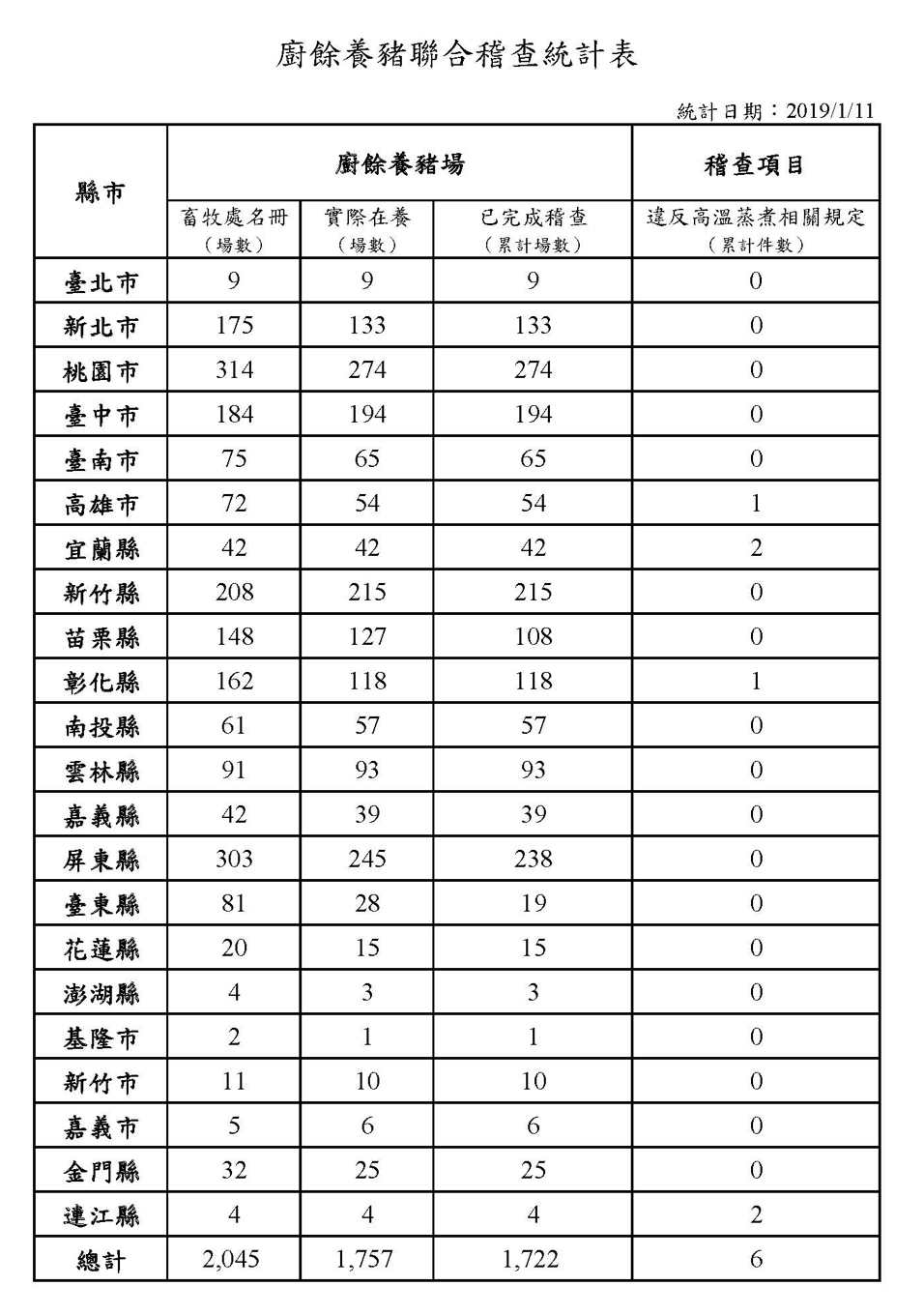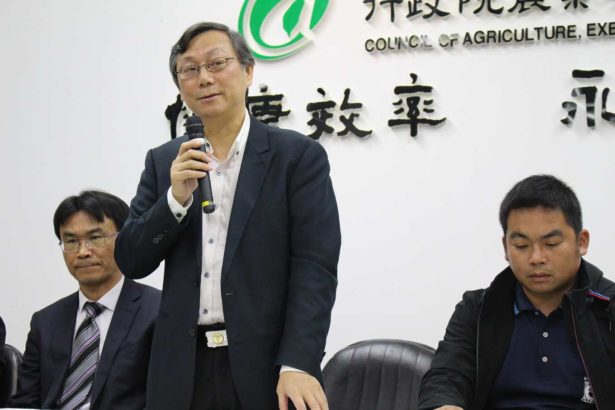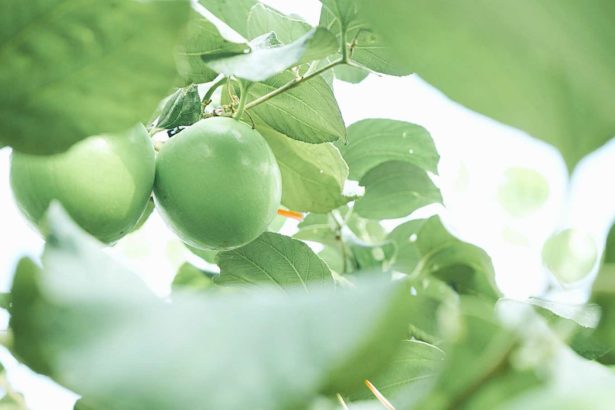Epidemic Prevention and Kitchen waste War 04 "Food waste ban is in a hurry, and the EPA jumps"Classical Swine Fever has not yet come in, the country is already in a mess."
Share1.3K + 1 Tweet EmailShares 1.3K
"Series foreword": the war against classical swine fever in Africa is heating up, and banning the raising of pigs with food waste not only provokes a civil war in the pig industry, but also makes environmental protection units jump, thinking that insufficient capacity will become a disaster. How do epidemic prevention and environmental protection coexist? This article is the fourth of a series of discussions. please click here to read other articles.
Taiwan has 1 million tons of food waste every year, and pigs digest 770000 tons.
The issue of kitchen waste is not only related to the pig industry, but also closely related to the issue of waste disposal. According to EPD statistics, about 650000 tons of food waste is recovered by garbage truck cleaning teams in various places every year, of which nearly 70% (440000 tons) is used to raise pigs, and the remaining 200000 tons are used for composting and sporadic bioenergy; in addition, the EPA also deduces the demand for food waste from domestic food waste pig farms, and it is estimated that 330000 tons of food waste is still in circulation in pig farms, which comes from snack bars, night markets and retail investors.
In other words, what we have to consider at present is: if there is a total ban on raising pigs with food waste, does the mainland have the capacity to handle 770000 tons of food waste from pigs?
Shuangbei manufactures hundreds of tons of kitchen surplus per day, which used to be absorbed by pig farmers in Taoyuan, Xinbei.
According to the statistics of the Council of Agriculture, the largest number of kitchen waste pig farms are in Taoyuan City (274), Pingtung County (245), Hsinchu County (215), Taichung City (194) and New Taipei City (133). In Xinbei City, there are 145 pig farms, raising about 59, 000 heads, of which 133 farms, about 90% are raising black pigs (a total of more than 50, 1000). The proportion of pig farms using food waste is very high, which has helped to eliminate the output of food waste in Shuangbei area for a long time.

.jpg)
At present, the classification of kitchen waste in China is not complete (Photography / Lin Xiejun)
EPD: the focus of epidemic prevention is to implement cooking, or to apply for computer documents?
Going back to the current topic of epidemic prevention, it was announced before the Council of Agriculture Day (6) that all pig farms with food waste had to pass the "reuse check" within a week before they could continue to feed their food waste to pigs. Li Jianyu also questioned: "the focus of epidemic prevention is to require pig farmers to implement cooking regulations, or to require older pig farmers Assang Arbor to learn how to use computers to apply for documents."
According to the waste cleaning Law (hereinafter referred to as the "waste cleaning Law"), not all pig farms have to obtain the qualification of "reuse inspection" for the use of food waste. Only to purchase kitchen waste that is listed as a "cause" (the daily kitchen waste is more than 16 kg), that is, "industrial waste", need to be registered with the environmental protection agency. the regulation is designed to prevent institutions from dumping waste at will. Only then will operators be required to declare the annual output of waste online, and stipulate that they should invite public tenders or ask clean-up operators to dispose of them on their behalf.
As for pig farmers who bid for tenders for food waste from local public offices, or receive food waste from communities, school institutions, or retail households, the source of food waste is "general waste". Therefore, pig farms do not need to register with environmental protection agencies and obtain the qualification of reuse inspection.
Li Jianyu points out that the application process for reuse is already tedious. The review process within the bureau is about 45 days. Coupled with the 30-day time limit for people to reissue certificates, the whole process requires at least 75 working days. Applicants have to specify who to receive food waste, the amount of information, and so on. It is estimated that many small-scale pig farmers will find it difficult to do so, and they have to entrust environmental protection consultants and environmental protection agents.
Classical swine fever has not yet come in, and the domestic environmental protection problem is already in a mess.
In addition, at present, some local governments have announced a total ban on raising pigs with food leftovers, which is equivalent to the disqualification of pig farms that have previously obtained reuse inspection. "on the other hand, pig farms in other counties and cities are anxious to apply for inspection, and pig farmers everywhere are anxious." Li Jianyu spoke bluntly.
A total of 46 pig farms have been reused and checked within the jurisdiction of New Taipei City, accounting for only 30% of the local pig farmers with food waste. Sun Zhongwei believes that it is impossible for pig farmers to pass the reuse check within a week. "unless there are simplified practices, such as giving temporary permits, there is no matching at all." He even said bluntly, "from the standpoint of the Environmental Protection Agency, I only feel that classical swine fever has not yet come in, and the domestic environmental protection problem is already in a mess!"
Sun Zhongwei stressed that the current epidemic prevention campaign is indeed important, but he hopes that the central authorities will give clear norms on the use of food waste. If, after the evaluation of experts and scholars, it is decided to ban the use of pig farming completely, all localities will jointly develop an appropriate mechanism for the treatment of food waste. If the government thinks that it is not necessary to ban the raising of pigs with food waste at this stage, it should continue to strictly check from the measures to implement the standards for cooking food waste, and should not easily disrupt the current stable mechanism for the recovery of food waste, otherwise it may lead to greater environmental problems during the epidemic prevention campaign, resulting in the chaos that food waste has nowhere to go and is dumped everywhere. (end of series)
Series of reports on African Classical Swine Fever epidemic Prevention and Kitchen waste War
(for news related to African classical swine fever, please click here to read)
Share1.3K + 1 Tweet EmailShares 1.3K
- Prev

Epidemic Prevention and Kitchen waste War 03 "expert opinion: if you want to use kitchen waste, you must achieve 100 points, or leave the industry!" Distinguish between meat and non-meat in kitchen waste to reduce risk
Epidemic Prevention and Kitchen waste War 03 "expert opinion: if you want to use kitchen waste, you must achieve 100 points, or leave the industry!" Distinguish between meat and non-meat in kitchen waste to reduce risk
- Next

"A southerly breeze. "Xunwei" jujube, green pearl in the soil of bad land
"A southerly breeze. "Xunwei" jujube, green pearl in the soil of bad land
Related
- A course of planting techniques and methods on how to grow carrots
- How to plant the latest tulips?
- Is it better to pick tea in the morning or in the afternoon? When is the best time for tea to be picked? what is the third or fifth tea?
- Launch Yuanxiao Happy combination Haocha + Tea Yuan healthy Taste
- Penghu Tourism "Fireworks 20 Parade with You"
- 2022 West Lake Happiness holds "Digital Revitalization Voucher" and draws iphone13 and laptop.
- Banqiao Fuzhou social houses are designed to change start-up combined with police elimination to create a safe and livable environment
- The convenient measure of "mechanical weeding" in Xinbei has been abused and the Agriculture Bureau has imposed heavy penalties on the illegal land consolidation.
- Changgeng University Joins Hands with Four Memory Factories to Rescue Memory Talent Shortage
- The list of Taiwan's top 100 MVP managers is listed by the Director-General of the Farmers' Association of Sanxia District.

